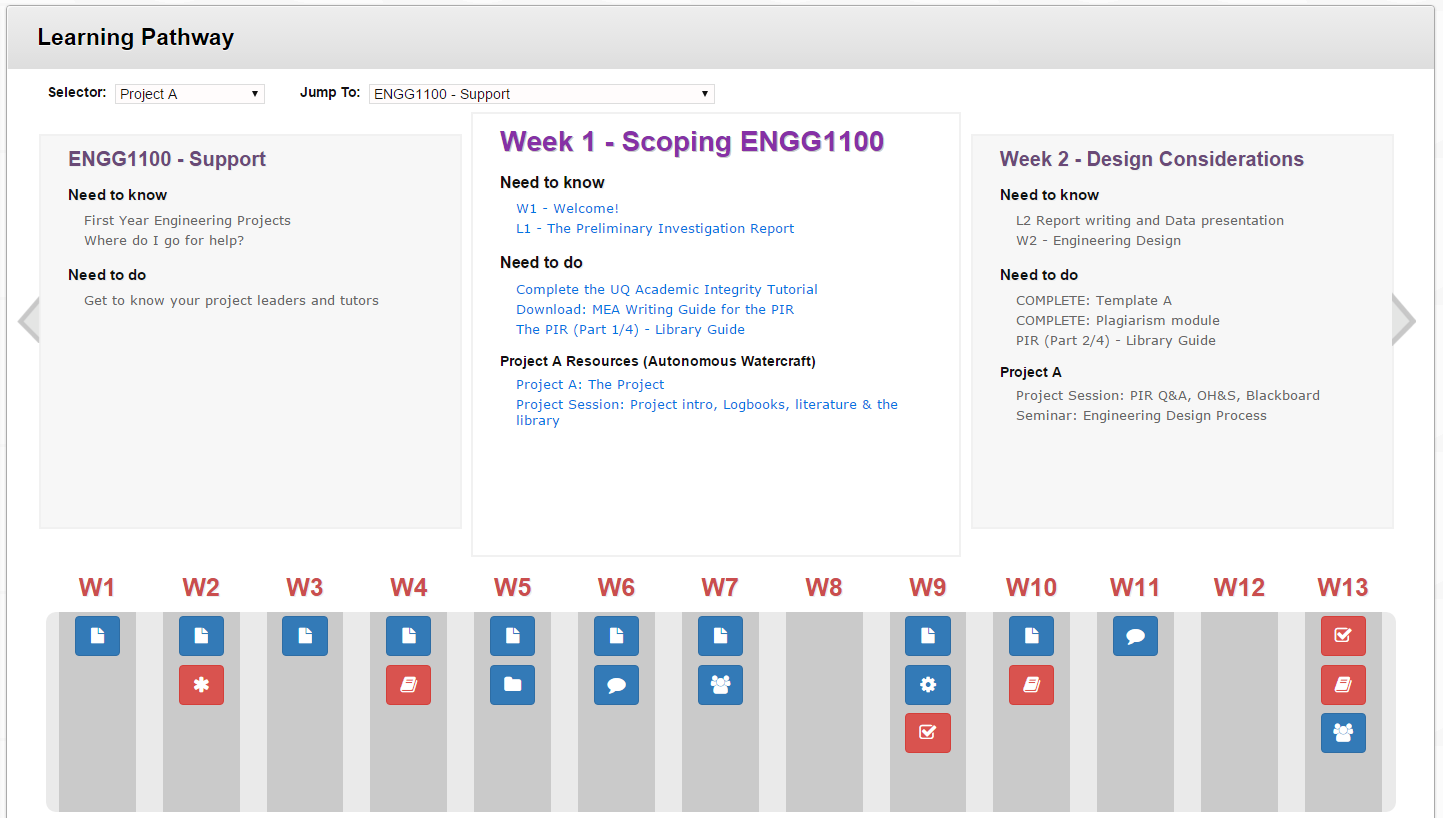The eLIPSE Learning Pathway is a navigational interface in Blackboard course sites that provides students with a clear visual roadmap through their course to help them stay on track.

Self-directed learning on complex authentic tasks can be difficult for students. A Learning Pathway is basically a study guide for students with your recommendations on how they should work through the course. It serves as a scaffold to make the concepts and curriculum of a course transparent for students by organising resources and tasks in a way that learners can "see" a pathway to achieve the learning objectives. Complex learning and sequences (e.g. podcast, online formative quiz, on-campus laboratory workshop then online summative quiz) are broken down into manageable steps and just-in-time access to resources and support materials is provided.
The eLIPSE Learning Pathway can provide information to students about their course in 2 ways. It is a visual roadmap that signposts for students what they “need to know” and “what they need to do” either on a week-by-week or concept-by-concept basis. It provides students with a personalised version of their path through the course and students can mark items as complete.
From the institutional perspective, the eLIPSE Learning Pathway enables educators to make sense of clickstream data as students interact with course content.
Since the first iteration of the Learning Pathway in 2012, the system has been successfully embraced by a variety of small and large classes (1200+ students) at different levels across faculties and institutions.
| Title | First Name | Last Name | Affiliation | Role in the project | Contact |
|---|---|---|---|---|---|
|
A/Professor |
Carl |
Reidsema |
School of Mechanical and Mining Engineering |
Lead CI |
c.reidsema@uq.edu.au |
| eLIPSE | Software development team | elipse@eait.uq.edu.au +61 7 334 68018 |
The eLIPSE Learning Pathway is complete. The tool is in preparation for handover to become part of UQ's centrally-supported digital learning environment. The name Learning Pathway will be retained. A pilot will be conducted in Semester 2, 2022.
UQ staff, who are not part of the pilot and who wish to implement an eLIPSE Learning Pathway in their course, can view instructions here.
If you experience difficulties, contact the learning design team for your faculty. A list of Faculty Learning Designers can be found here.
The following resources are available for users of the Learning Pathway:
|
The Learning Pathway is not a quick fix - it requires you to think holistically about the narrative behind your course and focus on how the various modules and assessment connect within that story. |
JavaScript, Blackboard, Piwik for analytics.
The first version of the eLIPSE Learning Pathway (Stage 1) resulted from a collaboration between the Faculties of EAIT and Science, and the UQ Centre for Educational Innovation and Technology (CEIT), now disestablished. The first stage of the project was funded initially by the Faculty of EAIT and subsequently awarded a UQ Technology-Enhanced Learning Grant (TEL Grant) in 2014.